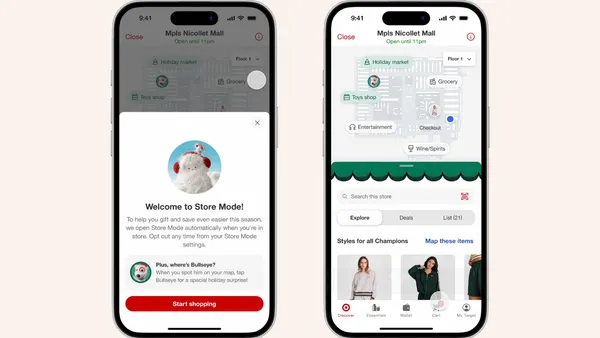Dive Brief:
-
PayPal Monday said that it’s clarifying its new user agreement in light of a backlash from customers and concern from the Federal Communications Commission regarding language indicating that customers could be contacted via robocalls and texts.
-
The language that was designed to take effect as PayPal became a company separate from eBay had no clear opt-out, and opting in was required to continue as a PayPal customer.
-
The clarification involves clearer compliance with FCC rules. PayPal now says that recorded messages or texts will only be used in cases of fraud or to collect a debt and that any marketing using those methods will require written consent from customers to opt in.
Dive Insight:
This has been a debacle badly marring PayPal’s separation from auction marketplace eBay, a spinoff widely seen as less favorable to the payments company than to its soon-to-be-former parent. Customers who got wind of the changes, either by reading the agreement or from the press, reported difficulty communicating with the company — another issue of concern to regulators.
The about-face is apparently satisfactory to regulators. The FCC has released a statement applauding PayPal for the changes it has made to its user agreement, which caused much confusion. The National Consumer Law Center, a consumer advocacy group that had fielded several complaints about the policy, told TechCrunch that it too is satisfied with PayPal’s new approach. PayPal is communicating with its users regarding the clarifications.
“I commend PayPal for taking steps to honor consumer choices to be free from unwanted calls and texts,” FCC enforcement bureau chief Travis LeBlanc said in a statement. “The changes to PayPal’s user agreement recognize that its customers are not required to consent to unwanted robocalls or robotexts. It clarifies, rightly, that its customers must provide prior express written consent before the company can call or text them with marketing, and that these customers have a right to revoke their consent to receive robocalls or robotexts at any time. These changes, along with PayPal’s commitments to improve its disclosures and make it easier for consumers to express their calling preferences, are significant and welcome improvements.”
E-commerce in the U.S. is a mature enough sector that retailers and payment companies like PayPal should be better aware than this of FCC regulations, consumer protections, and general consumer savvy, or they risk running afoul of regulators and losing customer trust.











